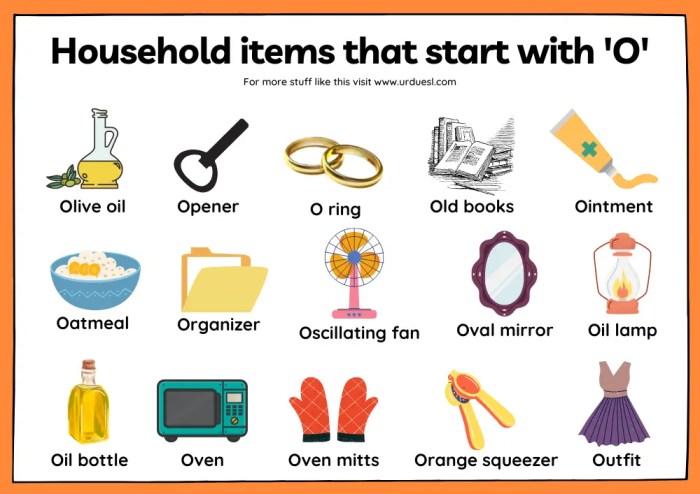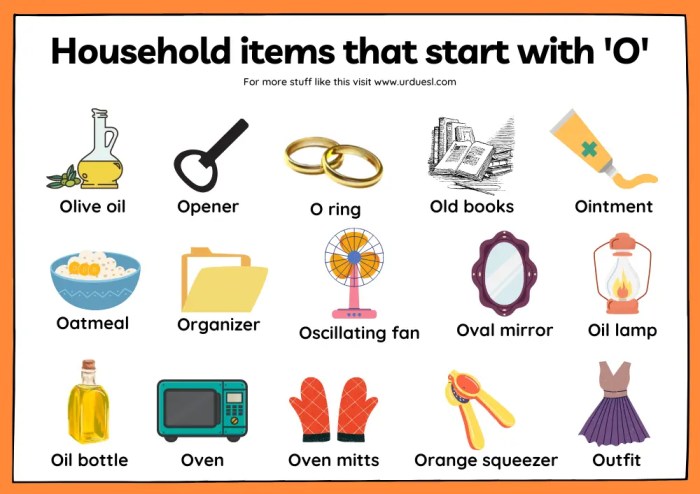Things to know before traveling to Taipei: From navigating the bustling streets to savoring the delicious local cuisine, Taipei offers a vibrant and unforgettable experience. This guide dives deep into the crucial aspects of preparing for your trip, ensuring a smooth and enjoyable journey.
This comprehensive resource covers everything from visa requirements and currency exchange to transportation options, accommodation choices, and essential phrases. It also includes insights into local customs, activities, safety precautions, shopping, and more, all designed to help you make the most of your time in this dynamic city.
Visa Requirements and Entry Procedures
Planning your trip to Taipei involves understanding the visa requirements specific to your nationality. Navigating the process can be streamlined with accurate information, ensuring a smooth entry into the country. This section details the visa application procedures, necessary documents, and processing times for various nationalities.
Visa Requirements by Nationality
Visa requirements for Taiwan differ based on your nationality and the purpose of your visit. This section provides a comprehensive overview of visa necessities for various nationalities.
| Nationality | Visa Type | Required Documents | Processing Time |
|---|---|---|---|
| United States Citizens | Tourist Visa (likely not required for short stays) | Passport valid for at least six months beyond the intended stay, round-trip flight tickets, proof of accommodation, financial statements demonstrating sufficient funds for the duration of the trip, and a completed application form. | Typically 3-5 business days (may vary depending on the application submission method and embassy workload). |
| Citizens of the European Union | Tourist Visa (likely not required for short stays) | Passport valid for at least six months beyond the intended stay, round-trip flight tickets, proof of accommodation, financial statements demonstrating sufficient funds for the duration of the trip, and a completed application form. | Typically 3-5 business days (may vary depending on the application submission method and embassy workload). |
| Citizens of China (Mainland) | Visa required for most purposes | Passport valid for at least six months beyond the intended stay, round-trip flight tickets, proof of accommodation, financial statements demonstrating sufficient funds for the duration of the trip, a completed application form, and any additional documents required by the Taiwanese authorities. | Variable, typically 5-10 business days, depending on the application submission method and embassy workload. Specific requirements may vary for different purposes of visit. |
| Citizens of other countries | Visa requirements vary significantly. | Consult the official website of the Taiwanese Ministry of Foreign Affairs or the Taiwanese representative office in your country for precise details. | Variable, based on nationality, purpose of visit, and specific application submission method. |
Essential Documents for Visa Application
A complete and accurate application requires several key documents. Failure to provide the correct documents may lead to delays or rejection of the application.
- Passport: A valid passport with at least six months of validity beyond the intended stay is crucial. Consider the passport’s validity period when calculating your travel dates.
- Flight Tickets: Round-trip or onward journey tickets are vital for demonstrating the intent to leave Taiwan at the end of the trip.
- Proof of Accommodation: Hotel reservations or other confirmed accommodation arrangements confirm your planned stay in Taiwan.
- Financial Statements: Evidence of sufficient funds to cover the duration of the stay in Taiwan is necessary, showing you can support yourself during the trip. Bank statements are commonly used.
- Completed Application Form: A correctly filled application form is essential. Carefully review and complete all requested information.
- Additional Requirements: Some nationalities may need additional documents. Consult the specific requirements of the Taiwanese authorities or the representative office in your country.
Visa Application Procedures
Obtaining a visa involves several steps, including online applications, embassy contacts, and processing times.
- Online Application: Some countries may have online visa application portals, making the process more convenient. Ensure to check the specific requirements and procedures on the official Taiwanese website or the relevant representative office.
- Embassy Contacts: If online application is not available, direct contact with the Taiwanese embassy or consulate in your country is necessary. This includes inquiries about specific requirements and submission procedures.
- Processing Times: Processing times vary depending on several factors, including the embassy’s workload, the specific visa type, and the completeness of the application. It’s wise to allow ample time for processing.
Currency and Exchange Rates
Navigating Taipei’s vibrant markets and bustling streets involves understanding the local currency, the New Taiwan Dollar (TWD). Knowing the exchange rates and the best places to exchange currency will help you budget effectively and avoid unnecessary fees. This section provides essential information on managing your finances during your trip.The New Taiwan Dollar (TWD) is the official currency of Taiwan.
It’s essential to understand its value compared to major currencies, like the US dollar, the Euro, and the British pound, to plan your spending. Fluctuations in exchange rates can impact your budget, so staying informed is crucial.
Local Currency and Exchange Rates
The New Taiwan Dollar (TWD) is the primary currency used in Taiwan. Understanding its value in relation to other major currencies is vital for effective budgeting. Exchange rates constantly fluctuate, influenced by global market forces and economic conditions. For instance, a stronger US dollar against the TWD might result in fewer TWD for every dollar spent. Therefore, checking current exchange rates before your trip or while in Taiwan is recommended.
Best Places for Currency Exchange in Taipei
Several options exist for exchanging currency in Taipei. Banks, particularly major international banks with branches in the city, often offer competitive exchange rates. However, you may find slightly better rates at dedicated currency exchange bureaus, especially in tourist areas. Be cautious of informal street vendors or unofficial exchange points, as they may offer less favorable rates or even engage in fraudulent practices.
Checking reviews and comparing rates before making a transaction is prudent.
Managing Cash and Credit Card Transactions
Managing cash and credit card transactions in Taipei is straightforward. ATM access is readily available, allowing you to withdraw cash using your international bank cards. Many establishments accept credit cards, especially in tourist areas and larger shopping malls. However, some smaller businesses or street vendors may only accept cash. Having a mix of cash and credit cards will be helpful for your convenience.
Comparing Exchange Rates
The following table illustrates varying exchange rates from different sources and banks, providing a comparative perspective. These rates are illustrative and can change daily. It’s crucial to check the current exchange rates from reputable sources before making any transactions.
| Source | Exchange Rate (USD to TWD) | Date |
|---|---|---|
| Bank A | 30.50 | 2024-08-15 |
| Bank B | 30.65 | 2024-08-15 |
| Currency Exchange Bureau X | 30.70 | 2024-08-15 |
| Online Converter Y | 30.60 | 2024-08-15 |
Transportation Options
Taipei offers a diverse range of transportation options, catering to various needs and preferences. From the efficient public transport system to convenient ride-sharing services, navigating the city is surprisingly straightforward. Understanding the pros and cons of each method can help you plan your trips effectively and save money.Public transport, particularly the subway, is a highly recommended and cost-effective way to get around.
The extensive network covers most major areas, making it ideal for exploring the city. However, taxis and ride-sharing services can be useful for shorter distances or when avoiding the public transport network.
Public Transportation
The Taipei MRT (Mass Rapid Transit) system is an extensive and efficient network that connects major destinations. The system is generally well-maintained and easy to navigate. Tickets are available for single rides, day passes, and multi-day passes, offering flexibility in budgeting.
- Subway (MRT): The subway is the fastest and most convenient way to travel between districts. Tickets can be purchased at stations or using a contactless payment system. This system is very well-structured and often the fastest way to reach your destination. Expect minimal delays during peak hours.
- Buses: Taipei’s bus network is extensive and covers areas not easily accessible by the subway. Buses are a more affordable option, particularly for longer journeys. Be prepared for potential delays, especially during rush hour.
Taxis
Taxis are readily available in Taipei. They are a good option for shorter trips or when you need to go to less accessible locations. However, fares can be higher than other options, and negotiating the fare beforehand is often recommended.
Ride-Sharing Services
Ride-sharing services, such as Uber and Grab, are also prevalent in Taipei. These services offer a convenient alternative to taxis, especially for shorter trips. They often provide a faster option than the subway and buses during rush hours, although fares can vary depending on demand and traffic conditions.
Cycling
Taipei is becoming increasingly cyclist-friendly. The city has designated bike lanes and a growing network of bicycle rentals. Cycling is an excellent way to explore the city at a relaxed pace and enjoy the scenery. However, be mindful of traffic and road conditions.
Comparison Table
| Transportation Option | Cost | Speed | Convenience |
|---|---|---|---|
| Subway (MRT) | Moderate | Fast | High |
| Buses | Low | Moderate | Moderate |
| Taxis | High | Moderate | Moderate |
| Ride-Sharing | Moderate | Moderate to Fast | High |
| Cycling | Low | Slow | Moderate |
Accommodation Options
Taipei offers a diverse range of accommodation options to suit every budget and preference. From cozy hostels perfect for backpackers to luxurious hotels catering to discerning travelers, you’re sure to find a place that fits your needs. Choosing the right accommodation is crucial for a comfortable and enjoyable trip, impacting your travel experience and daily activities. Consider factors like location, amenities, and price when making your selection.Finding the ideal accommodation involves balancing cost-effectiveness, convenient location, and the level of amenities you desire.
This section details the various options, highlighting their strengths and weaknesses, to help you make an informed decision.
Budget-Friendly Options
Hostels are an excellent choice for budget travelers. They offer social opportunities, shared spaces, and often include breakfast. A key advantage is their typically central location, allowing easy access to attractions and transportation hubs. However, the shared facilities may not suit everyone, and privacy can be limited.
Mid-Range Accommodations
Guesthouses provide a comfortable and affordable alternative to hotels. They often offer a more personalized experience compared to hostels, with private rooms and potentially more space. Many guesthouses are located in vibrant neighborhoods, providing access to local experiences. However, amenities might be less extensive than those found in hotels.
Luxury Stays, Things to know before traveling to taipei
Luxury hotels in Taipei offer a high level of service and amenities, from exquisite dining experiences to state-of-the-art spas. These hotels are often located in prime areas, providing easy access to shopping and entertainment. However, the cost of staying in a luxury hotel is significantly higher than other options.
Comparison Table
| Type | Location | Amenities | Price Range |
|---|---|---|---|
| Hostels | Usually central locations near transport hubs and attractions. | Shared kitchen, common areas, often breakfast included. Limited private space. | NT$ 500-NT$ 2000 per night (USD $15-$60) |
| Guesthouses | Often located in trendy neighborhoods, providing easy access to local experiences. | Private rooms, sometimes with shared kitchens and common areas. Varying levels of amenities. | NT$ 1500-NT$ 4000 per night (USD $45-$120) |
| Luxury Hotels | Prime locations, often near shopping districts and entertainment hubs. | Extensive amenities like spas, restaurants, pools, and high-end services. Generally more private rooms. | NT$ 4000+ per night (USD $120+) |
Recommended Accommodation Options
- Hostels: Taipei 101 Hostel, The Secret Garden Hostel. These hostels often boast excellent locations and social atmospheres.
- Guesthouses: Many guesthouses in the Ximending and Da’an districts offer a mix of comfort and affordability. Check online reviews for specific recommendations.
- Luxury Hotels: The Grand Hyatt Taipei, The Peninsula Taipei. These hotels are known for their high level of service and luxurious amenities.
- Airbnb Alternatives: Consider exploring Airbnb for apartments or rooms in residential areas. This option often provides more space and privacy compared to traditional accommodations.
Food and Dining Experiences

Taipei’s culinary scene is a vibrant tapestry woven from traditional Taiwanese flavors, international influences, and the irresistible allure of street food. From bustling night markets to elegant restaurants, the city offers a diverse range of dining experiences that cater to every palate and budget. This section explores the exciting world of food in Taipei, highlighting key aspects of the culinary landscape and offering practical advice for navigating the city’s gastronomic delights.The food scene in Taipei is a dynamic blend of tradition and innovation.
Before jetting off to Taipei, research the local customs and etiquette. While you’re planning your trip, consider checking out some stunning English beaches, like the ones featured on best beaches in england. Knowing the best time to visit, and the local transportation systems will ensure your Taipei trip is smooth and enjoyable. It’s all about preparation, right?
Expect to find everything from classic Taiwanese dishes made with fresh, local ingredients to international cuisine representing various cultures. The city’s diverse culinary landscape is complemented by a thriving street food culture, offering a unique and affordable way to experience the city’s vibrant energy.
Traditional Taiwanese Cuisine
Taiwanese cuisine is a delightful fusion of Chinese, indigenous, and Southeast Asian influences. It’s known for its fresh ingredients, savory sauces, and emphasis on balanced flavors. A hallmark of Taiwanese cuisine is the use of fresh vegetables, meats, and seafood, often prepared in stir-fry dishes or noodle soups. Expect to find an array of flavors, from mild and delicate to spicy and bold.
International Cuisine
Taipei boasts a diverse selection of international restaurants catering to various tastes. From classic Italian pasta dishes to authentic Japanese ramen, the city provides an excellent opportunity to sample cuisines from around the globe. These restaurants offer a chance to experience different culinary traditions and explore flavors beyond traditional Taiwanese fare.
Street Food Delights
Taipei’s street food scene is legendary. From savory dumplings to sweet treats, the city’s night markets are a feast for the senses. Vendors offer a wide array of delectable options, offering a chance to experience local delicacies in a vibrant and lively atmosphere. The sheer variety and affordability make street food an essential part of the Taipei dining experience.
Sampling various street food stalls is a great way to experience the local culture.
Local Delicacies and Popular Restaurants
Some popular local delicacies include stinky tofu (a fermented soybean product), beef noodle soup, and various types of dumplings. For a taste of authentic Taiwanese cuisine, consider trying restaurants specializing in these dishes. Popular restaurants, both local and international, offer a range of options to suit different tastes and budgets.
Dining Etiquette and Cultural Norms
Dining etiquette in Taiwan is generally informal and straightforward. Removing your shoes before entering a restaurant, or some establishments, is common. Respect for the host is important. Using chopsticks properly is crucial.
Recommended Restaurants
| Cuisine Type | Restaurant Name | Price Range |
|---|---|---|
| Taiwanese | Din Tai Fung | Mid-range |
| Taiwanese | Rao’s | Mid-range |
| International (various) | The Butcher’s Daughter | High |
| Japanese | Sushi Shop | Mid-range |
| Seafood | Seafood Restaurant | Mid-range |
Essential Phrases and Useful Language: Things To Know Before Traveling To Taipei
Learning a few key Taiwanese phrases can significantly enhance your trip to Taipei. It demonstrates respect for the local culture and can make interactions smoother and more enjoyable. Beyond the practical, understanding basic phrases fosters a deeper connection with the people and their way of life. This section provides a practical toolkit for navigating everyday situations.Understanding basic greetings, polite expressions, and phrases for ordering food and asking for directions will greatly improve your experience.
This knowledge will allow you to confidently navigate the city and connect with locals on a more personal level. It’s about more than just getting your needs met; it’s about experiencing the richness of Taiwanese culture.
Essential Taiwanese Phrases
Knowing basic greetings and polite expressions is crucial for any traveler. Learning these phrases demonstrates respect and facilitates smoother interactions. They are a fundamental part of building rapport and understanding the local culture.
- Hello: 你好 (Nǐ hǎo)
- Goodbye: 再見 (Zàijiàn)
- Thank you: 謝謝 (Xièxie)
- You’re welcome: 不客氣 (Bù kèqì)
- Please: 請 (Qǐng)
- Excuse me: 對不起 (Duìbùqǐ)
Politeness and Greetings
Politeness is paramount in Taiwanese culture. Using polite expressions demonstrates respect and is appreciated by locals. Formal greetings are often used in more formal situations.
- Formal greeting to someone older: 您好 (Nín hǎo)
- Formal greeting to someone younger: 您好 (Nín hǎo), but a more informal, yet polite greeting could be used: 你好 (Nǐ hǎo).
- Addressing someone politely: 先生 (Xiānshēng – for a man), 小姐 (Xiǎojiě
-for a woman), or 您好 (Nín hǎo)
-a more formal and polite way of greeting.
Ordering Food and Asking for Directions
These phrases are essential for navigating food stalls and asking for directions. Clear communication ensures you get what you want and find your way around easily.
- I would like… 我想點… (Wǒ xiǎng diǎn…) followed by the dish’s name. For example, I would like a bowl of noodles: 我想點一碗麵 (Wǒ xiǎng diǎn yī wǎn miàn).
- Where is…? …在哪裡 (… zài nǎlǐ)
- Can you tell me how to get to…? 請問怎麼去…? (Qǐngwèn zěnme qù…)
- I don’t understand. 我不懂 (Wǒ bù dǒng)
Expressing Gratitude
Expressing gratitude is important in any culture. Showing appreciation for help or service demonstrates respect and reinforces positive interactions.
- Thank you very much: 非常謝謝 (Fēicháng xièxie)
- Thank you for your help: 謝謝你的幫助 (Xièxie nǐ de bāngzhù)
English Taiwanese Hello 你好 (Nǐ hǎo) Thank you 謝謝 (Xièxie) Excuse me 對不起 (Duìbùqǐ) Please 請 (Qǐng) Where is the…? …在哪裡 (… zài nǎlǐ) I would like… 我想點… (Wǒ xiǎng diǎn…)
Local Customs and Etiquette
Immersing yourself in the vibrant culture of Taipei requires understanding and respecting local customs. Respectful behavior, whether in public spaces, temples, or social settings, fosters a positive experience for both you and the Taiwanese people. This section Artikels key etiquette points to ensure a smooth and enjoyable trip.
Public Space Etiquette
Public spaces in Taipei, like bustling markets and crowded transportation, demand awareness of personal space and common courtesy. Maintaining a quiet demeanor on public transportation is appreciated, and avoiding loud conversations or boisterous behavior is important. Queueing is a crucial aspect of daily life, and showing respect for the queue is essential.
So, you’re planning a trip to Taipei? Knowing the local customs and etiquette is key, but before you pack your bags, it’s equally important to consider the practicalities. Just like researching dublin travel questions to ask before you go , you should also ask yourself essential questions about Taipei’s transportation system, best time to visit, and any potential visa requirements.
These details will ensure a smoother and more enjoyable trip to this vibrant city.
Temple Etiquette
Taipei is home to numerous temples, each with its unique traditions and customs. Respect for these sacred spaces is paramount. Before entering a temple, remove your shoes. Appropriate attire is also essential; avoid wearing revealing clothing or shorts. Observe the temple’s rules and customs; avoid loud conversations and maintain a respectful distance from the altar.
Offerings are often made to deities, and understanding the temple’s customs surrounding these offerings can enhance your visit.
Social Etiquette
Social interactions in Taipei, like business meetings and casual gatherings, demand attention to detail. Showing respect for elders and authority figures is a significant aspect of Taiwanese culture. Making eye contact during conversation is generally expected, but avoid prolonged staring. Gift-giving, while common, often involves symbolic gestures and should be approached with sensitivity. Knowing the proper way to present and receive gifts demonstrates cultural awareness.
Cultural Norms and Traditions
Taiwanese culture is rich with traditions. The concept of “face” (mianzi) is important; avoiding public displays of anger or disrespect is crucial. Direct confrontation is generally avoided, and indirect communication styles are common. The importance of harmony and maintaining relationships (guanxi) shapes social interactions.
Key Cultural Differences and Appropriate Responses
| Cultural Difference | Appropriate Response |
|---|---|
| Direct Confrontation: Avoidance of direct conflict. | Response: Use indirect communication, focus on finding common ground. |
| Queueing: Importance of orderly queueing. | Response: Respect the queue and patiently wait your turn. |
| Gift-giving: Symbolic gestures are often significant. | Response: Present gifts with a thoughtful approach and show appreciation for the gesture. |
| Elderly Respect: Show deference to elders. | Response: Use respectful language, offer assistance when appropriate. |
| Direct eye contact: May be perceived as confrontational. | Response: Maintain appropriate eye contact; avoid prolonged staring. |
Activities and Attractions

Taipei offers a vibrant tapestry of experiences, from historical landmarks to bustling markets and serene natural escapes. This section details popular tourist attractions, categorized for easier planning, highlighting opening hours, admission fees, and convenient transportation options. Understanding these details will help you craft a personalized itinerary that suits your interests and pace.
Popular Tourist Attractions
Taipei boasts a diverse range of attractions catering to various interests. This overview provides a starting point for your exploration, guiding you through historical sites, cultural experiences, and natural beauty.
| Attraction Name | Type | Description | Location |
|---|---|---|---|
| National Palace Museum | Historical | Housing an extensive collection of Chinese art and artifacts, from jade carvings to porcelain, this museum offers a glimpse into Chinese history and culture. The vast collection spans millennia, providing a comprehensive overview of Chinese art and civilization. | Xinyi District |
| Opening Hours: |
|
||
| Admission Fees: |
|
||
| Transportation: |
|
||
| Chiang Kai-shek Memorial Hall | Historical | A grand monument dedicated to former President Chiang Kai-shek, this hall embodies a significant period in Taiwanese history. The architecture and surrounding park offer a glimpse into the country’s past. | Zhongshan District |
| Opening Hours: |
|
||
| Admission Fees: |
|
||
| Transportation: |
|
||
| Maokong Gondola | Natural | Experience breathtaking panoramic views of Taipei from the Maokong area. The gondola ride offers a unique perspective on the city’s landscape. | Shilin District |
| Opening Hours: |
|
||
| Admission Fees: |
|
||
| Transportation: |
|
||
| Yehliu Geopark | Natural | A stunning coastal park showcasing unique rock formations sculpted by nature over centuries. The park’s diverse rock formations and sea views provide a memorable experience. | Yehliu |
| Opening Hours: |
|
||
| Admission Fees: |
|
||
| Transportation: |
|
Comparing Attractions
The National Palace Museum excels in showcasing Chinese art, while the Chiang Kai-shek Memorial Hall provides a glimpse into Taiwan’s history. The Maokong Gondola offers a unique perspective on the city, while Yehliu Geopark displays nature’s artistry. Each attraction provides a distinct experience, allowing you to tailor your itinerary to your preferences. The availability of public transport and clear operating hours for each location allows for seamless integration into your travel plan.
Safety and Security Considerations
Taipei is generally a safe city for tourists, but like any major city, it’s wise to be aware of potential safety risks and take precautions. Knowing how to stay vigilant and handle unexpected situations can greatly enhance your trip experience. This section Artikels important safety and security considerations for your visit.
Before jetting off to Taipei, research the city’s vibrant street food scene! Knowing the best places to grab delicious and cheap eats is crucial. Also, consider checking out some travel tips for finding the best states to live in, especially if you’re planning a longer stay. travel tips best states for living can offer insights into different lifestyles and costs of living.
Ultimately, packing light and understanding the local customs are key for a smooth trip to Taipei.
General Safety and Security Concerns
Taipei is a vibrant and generally safe city. However, petty theft, such as pickpocketing in crowded areas, can occur. Tourist hotspots and public transportation can be crowded, making these areas more vulnerable to such incidents. Be mindful of your surroundings, especially at night, and avoid displaying expensive jewelry or electronics in public. Staying aware of your surroundings is paramount for a safe and enjoyable trip.
Personal Safety and Belongings
Protecting your belongings is crucial. Keep your valuables close to you, particularly in crowded areas. Avoid leaving expensive items unattended, even for a moment. Use designated storage areas for bags and luggage at train stations or airports, and never leave valuables inside unattended bags.
Reporting Lost or Stolen Items
If you lose or have your belongings stolen, report the incident to the nearest police station immediately. Gather as much information as possible, such as the time, location, and description of the item. Keep copies of any relevant receipts or documentation. Have the police report translated into English or your native language if needed.
Emergency Contacts and Useful Resources
Knowing how to contact emergency services is essential. Here’s a list of important contacts and resources for tourists:
- Taipei Police Department: Report crimes and lost/stolen items to the nearest police station.
- Emergency Number: 110 is the emergency number for police, fire, and ambulance services.
- Local Hospitals: Familiarize yourself with the location of hospitals and clinics near your accommodation or planned activities. Check the hospital’s website for international patient information or emergency contacts.
- Embassy/Consulate: Keep the contact information for your home country’s embassy or consulate in Taiwan. This is crucial for any serious emergencies or if you need assistance from your home country’s government.
- Useful Websites: Check websites for local tourist information or resources that can provide additional assistance, including a detailed guide to reporting lost/stolen items and contact information for emergency services.
Shopping and Souvenirs
Taipei offers a vibrant shopping scene, catering to every taste and budget. From bustling markets overflowing with local treasures to modern malls showcasing international brands, you’ll find something to delight every souvenir hunter. This section will guide you through the diverse shopping landscape, highlighting key areas and providing tips for navigating the markets and haggling effectively.Taipei’s shopping experience is a unique blend of tradition and modernity.
Whether you’re seeking authentic crafts, trendy clothing, or high-end electronics, the city provides a vast selection. Understanding the different shopping environments and the nuances of haggling will enhance your overall experience.
Shopping Areas for Souvenirs
Taipei boasts numerous shopping areas, each with its own unique character. Knowing where to go based on your interests will save you time and ensure you find the perfect souvenirs. Specific areas cater to different needs and preferences.
- Shilin Night Market: This iconic night market is renowned for its diverse range of food stalls, but also offers a significant selection of souvenirs, including traditional crafts, clothing, and accessories. The vibrant atmosphere and bustling crowds create an unforgettable experience.
- Raohe Street Night Market: A popular choice for electronics, fashion accessories, and various handicrafts, Raohe Street Night Market offers a mix of unique and practical items. The market’s extensive selection ensures you’ll find something special.
- 101 Shopping Mall: Located in the heart of Taipei, the Taipei 101 shopping mall is a premier destination for international brands, designer goods, and high-end electronics. For those seeking upscale items and global brands, this is the ideal location.
- Ximending: Famous for its trendy fashion and youthful energy, Ximending caters to those seeking fashionable apparel, accessories, and the latest gadgets. This area is perfect for those wanting a modern shopping experience.
Bargaining in Markets
Bargaining is a common practice in many markets, especially the night markets. It’s a way to interact with vendors and potentially get a better deal. While not always necessary, it’s a cultural aspect that enhances the experience.
“When bargaining, be polite, respectful, and maintain a friendly tone. Don’t be aggressive or rude.”
Start with a reasonable offer, be prepared to walk away if the price isn’t agreeable, and remember that a good deal is often a compromise.
Types of Shops and Markets
This table categorizes different shops and markets based on the types of items they sell, offering a quick overview of what you can expect to find in each location.
| Shop/Market Type | Typical Items |
|---|---|
| Shilin Night Market | Souvenirs, traditional crafts, clothing, accessories, food |
| Raohe Street Night Market | Electronics, fashion accessories, handicrafts, snacks, and drinks |
| 101 Shopping Mall | International brands, designer goods, high-end electronics |
| Ximending | Trendy fashion, apparel, accessories, latest gadgets |
Final Review
In conclusion, preparing for a trip to Taipei requires careful consideration of various factors. This guide offers a structured approach, equipping you with the knowledge and tools needed for a seamless and enriching experience. From securing the necessary visa to understanding the local customs, each aspect contributes to a memorable journey. Embrace the adventure and discover the unique charm of Taipei!




